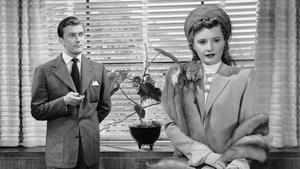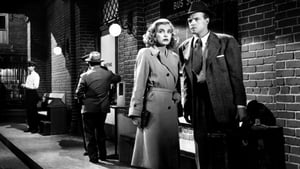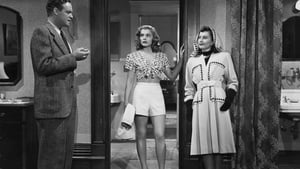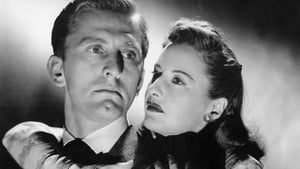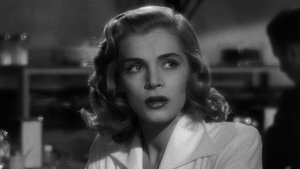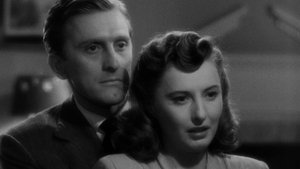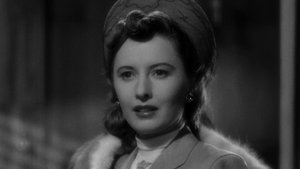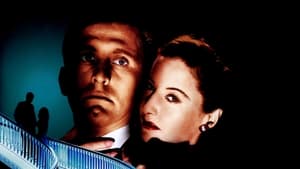Video Sources 0 Views
- Watch trailer
- The Strange Love of Martha Ivers 1946 Colorized

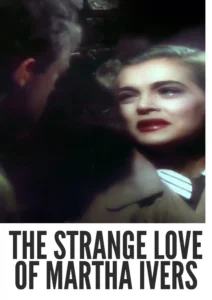
Synopsis
Table of Contents
Toggle
Delve into the shadowy world of The Strange Love of Martha Ivers, a gripping film noir drama from 1946, now brought to life with breathtaking colorization. Featuring stellar performances and a suspenseful plot, this film explores themes of guilt, obsession, and the destructive power of secrets. Perfect for fans of classic film noir and those who appreciate complex, character-driven stories, this HD download offers a fresh perspective on a timeless cinematic gem. Although the film has no other official titles, it has been referred to as Martha Ivers in some circles.
The Strange Love of Martha Ivers unfolds in the small town of Iverstown, Pennsylvania, where a dark secret binds three individuals together. Martha Ivers (Barbara Stanwyck), a wealthy and powerful woman, carries the burden of a childhood crime that has shaped her entire life.One fateful night, as a young girl, Martha and her friend Sam Masterson (Van Heflin) are involved in an incident that leads to the death of Martha’s cruel aunt. Lawrence Trevane (Kirk Douglas), a timid and ambitious young man, helps Martha cover up the crime. Years later, Sam returns to Iverstown, reopening old wounds and threatening to expose the truth. As Sam investigates the circumstances surrounding the death, he becomes entangled in a web of deceit and desire, further complicated by Martha’s manipulative nature and her loveless marriage to Lawrence.The film masterfully explores the psychological complexities of its characters, revealing the dark undercurrents beneath the surface of their seemingly perfect lives. With its sharp dialogue, atmospheric cinematography, and unexpected plot twists, The Strange Love of Martha Ivers is a captivating film noir that will keep you on the edge of your seat until the very end.
The film boasts a remarkable cast of actors who deliver unforgettable performances:
- Barbara Stanwyck as Martha Ivers
- Van Heflin as Sam Masterson
- Kirk Douglas as Lawrence Trevane
- Lizabeth Scott as Antonia “Toni” Marachek
- Judith Anderson as Mrs. Ivers
The Strange Love of Martha Ivers firmly resides in the film noir genre, characterized by its dark themes, morally ambiguous characters, and stylish visual aesthetic. It also incorporates elements of drama and suspense, creating a compelling and emotionally resonant cinematic experience.
Released in 1946, The Strange Love of Martha Ivers reflects the anxieties and moral ambiguities of post-World War II America. The film noir genre flourished during this period, offering a dark and cynical counterpoint to the idealized images of American life presented in mainstream cinema. The Strange Love of Martha Ivers exemplifies the key characteristics of film noir, including its exploration of crime, corruption, and the darker aspects of human nature. Its success contributed to the genre’s growing popularity and influence on subsequent films.
This colorized version of The Strange Love of Martha Ivers has been meticulously crafted using state-of-the-art digital technology, breathing new life into the classic film while preserving its original mood and atmosphere. The colorization process involved a careful study of the film’s visual elements, including costumes, sets, and lighting, to ensure that the colors accurately reflect the historical period and the story’s emotional tone. The dedicated team of artists and technicians employed advanced algorithms and digital painting techniques to seamlessly integrate the colors into each scene. The result is a visually stunning and immersive viewing experience that enhances the film’s dramatic impact and allows modern audiences to appreciate its artistry in a whole new way.
- : Lewis Milestone
- : Robert Rossen (screenplay), based on a story by Jack Patrick
- : Victor Milner
- : Duncan Mansfield
- : Miklós Rózsa
- : Hal Wallis Productions
- : Paramount Pictures
- : 116 minutes
- : MP4
- : HD (1080p)
- : Compatible with a wide range of devices, including smartphones, tablets, computers, and smart TVs.
The Strange Love of Martha Ivers (1946) has been praised for its compelling storyline, outstanding performances, and stylish direction. Critics have noted its effective use of suspense and its exploration of complex psychological themes. The film has also been recognized for its contribution to the film noir genre and its enduring appeal to audiences.
- : What is The Strange Love of Martha Ivers about?
- A: The Strange Love of Martha Ivers is a film noir drama about a woman haunted by a childhood secret and the consequences that unfold when a former friend returns to town.
- : Who are the main actors in The Strange Love of Martha Ivers?
- A: The film stars Barbara Stanwyck, Van Heflin, and Kirk Douglas.
- : Is this version of The Strange Love of Martha Ivers colorized?
- A: Yes, this version has been professionally colorized to enhance the viewing experience.
- : What are the key themes explored in The Strange Love of Martha Ivers?
- A: The film explores themes of guilt, obsession, betrayal, and the destructive power of secrets.
- : What is the download format?
- A: The download format is MP4, which is compatible with most devices.
- : What resolution is the download?
- A: The resolution is HD (1080p), providing a high-quality viewing experience.
Watch The Strange Love of Martha Ivers Today!
